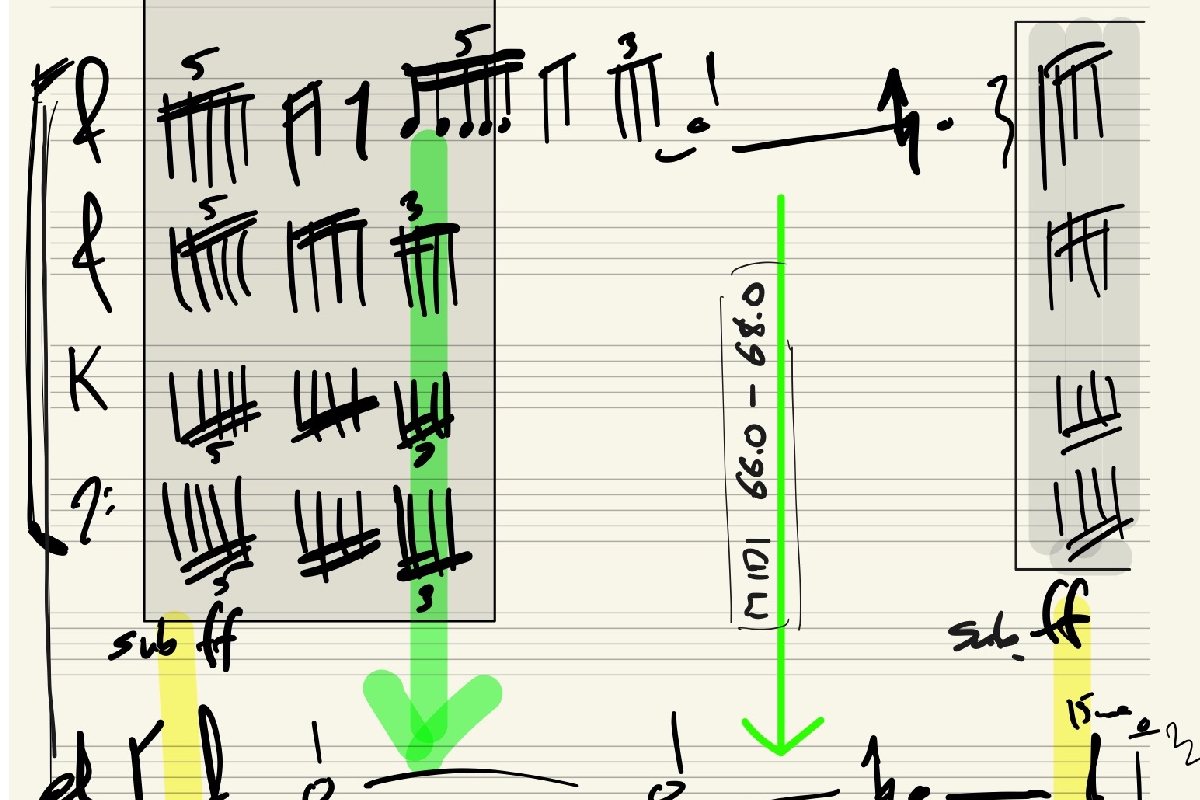
Unleashing creative potential with AI
UM researcher investigates the future of computer assisted music
We have entered an era of AI art, where computers can generate images, essays and songs that can look or sound very much like the real thing. The artistic capability of artificial intelligence is limited to its database, and it is ultimately incapable of the intention and expression of a human artist. In this limitation UM professor of composition, Örjan Sandred, sees an opportunity for AI as a musical tool to expand the composer’s human capabilities.

Örjan Sandred, professor of composition, Desautels Faculty of Music.
“Music has a character of being very abstract,” says Sandred. “A painting, for example, is a physical thing that you return to and study, but once a composition is played it only exists in our memory. Because music ultimately takes place in our brain, the rhythms and structures of music reflect how the brain works, and by extension, the learning capabilities of AI.”
In 2022 Sandred was recognized with a Guggenheim Fellowship in support of a future collaboration with the Stenhammar String Quartet in Sweden. The goal of the project is to produce a concert with live electronic accompaniment controlled by artificial intelligence.
“I congratulate Dr. Sandred on receiving the prestigious support for his work internationally from the Guggenheim Foundation, and locally from Research Manitoba,” says Mario Pinto UM Vice-President (Research & International). “His research of incorporating AI into live musical performances is pushing the limits of human creativity in a truly innovative direction.”
Many of Dr. Sandred’s works incorporate rule-based computer assisted composition techniques, to explore possibilities that would be too complex or time-consuming for a human being. In this method the artist remains at the center of the artistic process. Once the system knows the rules it can generate a lot of material, and in in this way Sandred looks for the seeds of new ideas.

Örjan Sandred installs a contact microphone in a piano for an AI duet.
“Since the 90’s I’ve been fascinated with the potential of artificial intelligence as a tool to explore the unknown,” says Sandred. “If I drive my idea to that extreme, what would it mean? The computer can give me that and help me to become my own critic by exposing patterns in my compositions that I would probably miss if I were working with pen and paper.”
Sandred is currently working on a commission from the Manitoba Arts Council for pianist Megumi Masaki. Using a contact microphone placed inside Masaki’s piano, the AI listens and plays along electronically as a duet between human and machine. The project’s working title, Footprints, reflects the themes of human impact on the environment. Like climate change, AI reflects and expands the melodies Masaki plays until it grows into something beyond her control.
While Sandred brings the technology for the performance, he will not interact with the AI during the live session. “I give it a structure to listen for, so to speak, but it doesn’t know anything, and then during the piece it will learn more and more,” he explains of the process. “It’s one thing to use these algorithms in composition, but to do it live at a concert requires more fulsome preparation. In music we typically only get one shot, and the computer tends to take us to unexpected places, which is the essence of art.”
A date for the performance of Footprints is not yet set. Sandred’s collaboration with the Stenhammar Quartet will take place in fall 2024. His music is available on Spotify, Sonic Trails (2020) and Cracks and Corrosion (2009). The second edition of his book, The Musical Fundamentals of Computer Assisted Composition, is now available.
Research at the University of Manitoba is partially supported by funding from the Government of Canada Research Support Fund.






